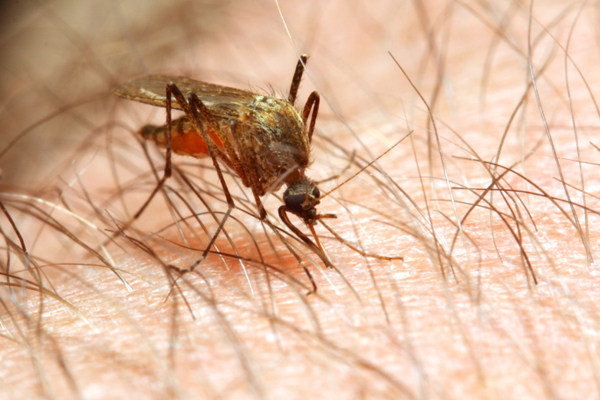Economics research promotes malaria testing

In poor countries where malaria is prevalent but access to health care is limited, many people mistakenly treat the common cold or other serious illnesses such as pneumonia with medications for the mosquito-borne disease.

Bill Dickens is a University Distinguished Professor of Economics and Social Policy. Photo by Mary Knox Merrill.
Northeastern economist William Dickens, a University Distinguished Professor of Economics and Social Policy and a nonresident senior fellow at the Brookings Institution, and a team of researchers is trying to combat this problem. Late last year, the researchers published a seminal research study in the PLOS ONE open-assess journal, which found that providing subsidies and education can influence more people in poor countries like Uganda to get tested for malaria. Upping the availability of malaria tests increased the likelihood that infected people would take the appropriate medication and decreased the likelihood of taking unnecessary, costly, and potentially harmful medications, which are often sold at drug stores without a prescription.
Arteminisin is the only available drug that is broadly effective against malaria, which has adapted to resist earlier forms of treatment, but it is also very expensive. Subsidies make it possible for people to purchase the drug, Dickens explained, but also lead to its overuse. This, in turn, can increase the cost of malaria treatment programs and raise the risk that those who take Arteminisin inappropriately can build parasite immunity and suffer consequences from delayed treatment of other serious illnesses.
“The big problem right now in fighting malaria is that the parasites have become resistant to all of the cheap old cures to malaria,” Dickens said.
Subsidizing the costs of malaria tests, he noted, makes them more affordable for both drug stores and patients, and thus more accessible, Dickens said. He added that stores often don’t provide these tests if they must pay full price, citing a fear of being unable to sell them.
“Overall, we proved that you could distribute the tests through the private sector,” Dickens said, noting that hospitals and public health organizations traditionally perform the tests. “This was a very effective way to get more tests out.”
Dickens presented the findings last weekend at the annual meeting of the American Economic Association. He hopes that the study, which was conducted by researchers from institutions including Northeastern, Johns Hopkins University, and the Harvard School of Public Health, will help shape the policies of organizations such as the Global Fund and U.S. Agency for International Development, both of which have major campaigns against malaria.
“These findings can make a very real difference in how global development organizations fight malaria,” he said.





